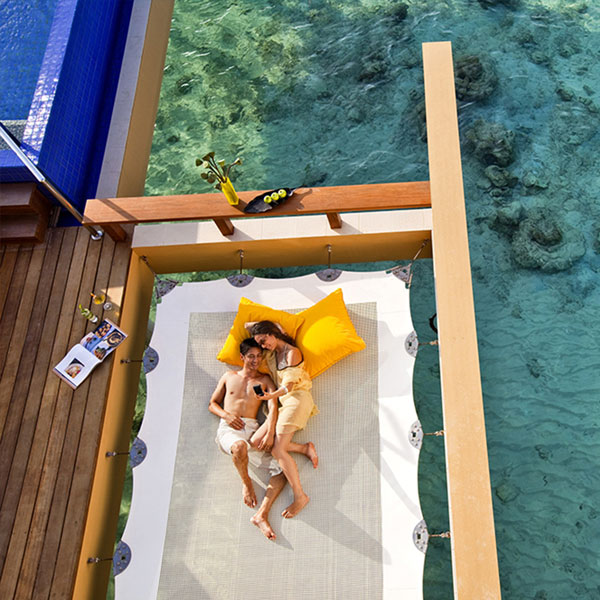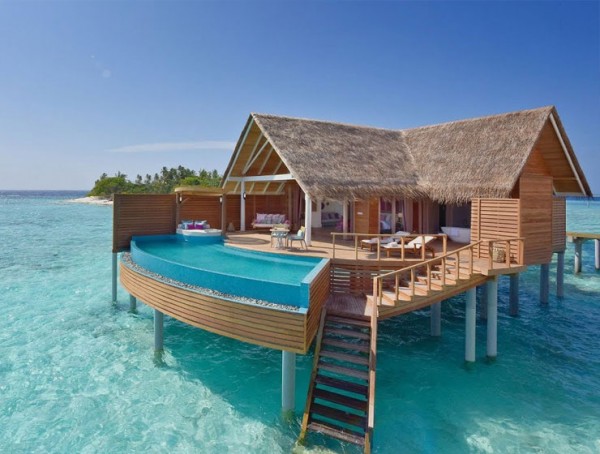Maldives
The Maldives officially the Republic of Maldives is a small archipelagic state in South Asia, situated in the Arabian Sea of the Indian Ocean. It lies southwest of Sri Lanka and India, about 700 kilometres (430 mi) from the Asian continent's mainland. The chain of 26 atolls stretches from Ihavandhippolhu Atoll in the north to Addu Atoll in the south (across the Equator). Comprising a territory spanning roughly 298 square kilometres (115 sq mi), Maldives is one of the world's most geographically dispersed sovereign states as well as the smallest Asian country by land area and population, with around 515,696 inhabitants. Malé is the capital and the most populated city, traditionally called the "King's Island" where the ancient royal dynasties ruled for its central location.
The Maldivian archipelago is located on the Chagos-Laccadive Ridge, a vast submarine mountain range in the Indian Ocean; this also forms a terrestrial ecoregion, together with the Chagos Archipelago and Lakshadweep. With an average ground-level elevation of 1.5 metres (4 ft 11 in) above sea level, it is the world's lowest-lying country, with even its highest natural point being one of the lowest in the world, at 5.1 metres (17 ft).
Tourism
The Maldives remained largely unknown to tourists until the early 1970s. Only 189 islands are home to its 447,137 inhabitants. The other islands are used entirely for economic purposes, of which tourism and agriculture are the most dominant. Tourism accounts for 28% of the GDP and more than 60% of the Maldives' foreign exchange receipts. Over 90% of government tax revenue comes from import duties and tourism-related taxes.
The development of tourism fostered the overall growth of the country's economy. It created direct and indirect employment and income generation opportunities in other related industries. The first tourist resorts were opened in 1972 with Bandos Island Resort and Kurumba Village (the current name is Kurumba Maldives), which transformed the Maldives economy.
The resort island of Landaa Giraavaru (Baa atoll)
According to the Ministry of Tourism, the emergence of tourism in 1972 transformed the economy, moving rapidly from dependence on fisheries to tourism. In just three and a half decades, the industry became the main source of income. Tourism was also the country's biggest foreign currency earner and the single largest contributor to the GDP. As of 2008, 89 resorts in the Maldives offered over 17,000 beds and hosted over 600,000 tourists annually. In 2019 over 1.7 million visitors came to the islands.
The number of resorts increased from 2 to 92 between 1972 and 2007. As of 2007, over 8,380,000 tourists had visited the Maldives.
The country has six heritage Maldivian coral mosques listed as UNESCO tentative sites.



